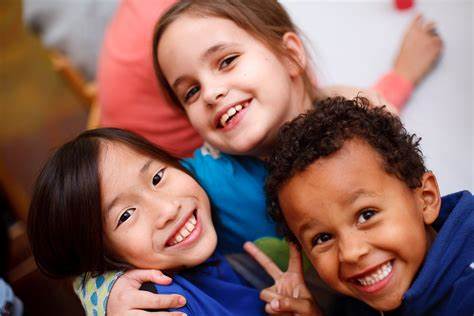“Do the best you can until you know better.
Then when you know better, do better”
Maya Angelou
Supporting our children to celebrate diversity
Following the heart-breaking death of George Floyd, we are all reminded of the fundamental importance of raising the next generation of children to not just accept difference and diversity but to celebrate it.
The research suggests that children as young as 5 will already display bias towards other groups of people. Dr Danielle Perszyk, a psychologist based at Northwestern University in the United States, observed that young children are astute observers of the social world and are exquisitely sensitive to the interactions they observe in the world around them. These observations impact directly on how they perceive the world and the people in it.
It’s hugely important that we as parents, caregivers and educators are aware of our responsibility to ensure that all children and young people have opportunities to experience and learn about inclusivity. There is no longer a side-line, not talking about race and diversity may inadvertently send the message that this subject is off limits.
So how do we start these conversations in a helpful and age appropriate way…
Books and Television: For younger children reading books and watching television programmes that celebrate difference can be a really helpful way to start conversations about how we are both similar and different to other people from all over the world. It can also be helpful to notice who is not being included and why this might be the case. Weaving these noticing conversations into our everyday life raises our child’s awareness and from awareness we can build kindness and compassion.
Remain Curious: It’s really important that we remain curious when our children are curious. Sometimes our reflexive response to spontaneous questions about the colour of a person’s skin might be to quieten our children and move them on to something else. Don’t do this, allow them to be curious and take the time to answer their questions in an honest respectful way that both acknowledges and celebrates difference. Sometimes they will ask questions you don’t know the answer to and that’s OK, sometimes this will mean sitting with uncertainty and other times it will mean finding the answer together.
Being mindful of the environment we are nurturing: Our children will use us as reference points for how to respond to others. We need to be aware of our own unconscious biases and how we talk about other people within our family. Sometimes it’s helpful to ask ‘what messages am I giving my children through my daily words and actions’.
Empower our children. We can all feel overwhelmed when things happen in the world and we feel powerless to make a contribution. Our children can also feel like this and it’s our job as parents and carers to help them to recognise that they can make a contribution. This story is about recognising and celebrating difference and every day there are opportunities for all of us to make a difference. We can help by being kind, we can help by being inclusive, we can help by standing alongside someone who is not being treated fairly, we can help by showing up. Children at school will both observe and experience unfairness - who gets picked last, who doesn’t get invited to the birthday party... and it’s so important we use these opportunities to explore their feeling and promote kindness.
Facilitate critical thinking: They will also be subtly influenced through the movies and television programmes they are watching and by the adult conversations they observe around them. Rachel Berman, a researcher on the project called Can We Talk About Race? Confronting Colour Blindness in Early Childhood Settings, suggests that we need to start supporting our children to be critical readers and viewers by asking them questions about what they are observing and helping them to notice and empathise with unfairness.
Hold onto hope: We need to make sure that we are sharing a balanced story. Yes, there is racism but there is also a massive body of people who are working hard for a fairer world. Share the stories of strength and courage from across the world, stories where kindness and compassion triumphed. Our children need to know that their contribution can start with the person sitting next to them on the bus.
It is very tempting to protect our children from conversations about differences and race. Some parents feel very anxious about how to have these conversations and worry about saying or doing the wrong thing. However, if we want to raise children to see and respond to injustice these conversations are where we need to start. No matter who we are or where we live this will be part of our children’s lives; they will know difference. It is our job to make sure that these differences are met with kindness and compassion and recognised as something to be treasured and celebrated. So please look for those small teachable moments by finding the closest entry point to make it relevant. This is not about one big conversation it’s about the smallest of steps. Let’s take the first small step to a better future for everyone.

Comments
Post a Comment